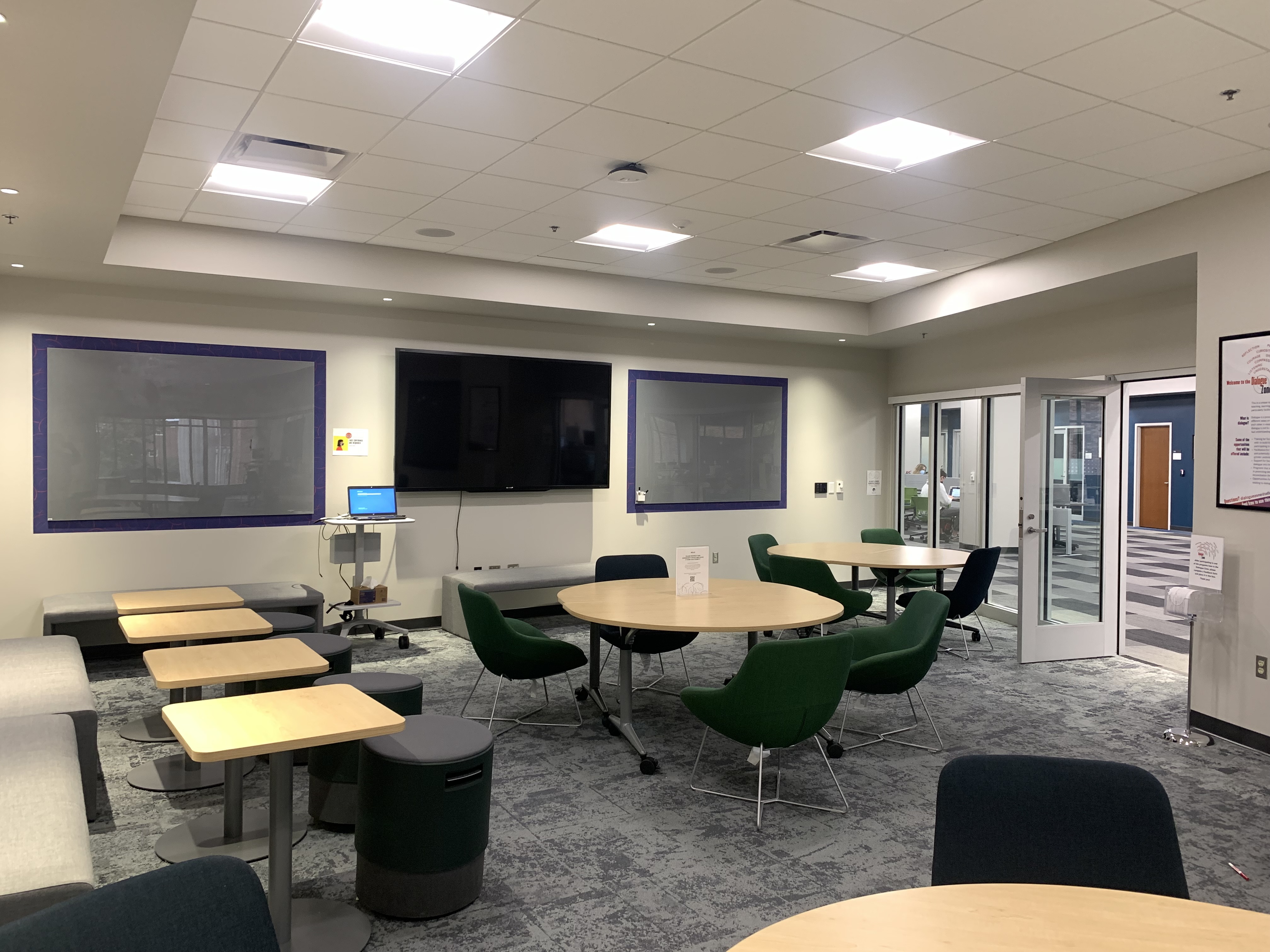Blogs

Dialogue Zone Welcomes New Cohort of Facilitators
This month, the Dialogue Zone welcomed a new cohort of faculty, staff, and students as part of its annual facilitator training program.
Since the Dialogue Zone launched in August 2019, it has worked with members of the campus community to facilitate challenging conversations at the university. In its first year, twenty-three faculty and staff members served as facilitators for the programs that the Dialogue Zone hosted and the dialogue-related services that it offered on campus. These individuals participated in periodic training workshops, special training sessions focused on particular approaches to dialogue, and conversations through which the Dialogue Zone identified particular needs on campus. In its second year, twenty-two faculty and staff members served as facilitators. These individuals engaged in similar activities and contributed to the Dialogue Zone’s efforts in similar ways. Their efforts helped bring the Dialogue Zone through its initial start-up period and build its capacity to offer programs and services to the campus community.
In the 2021-2022 academic year, the Dialogue Zone launched a new program for the development of capacity for facilitators: its Facilitator Cohort Program. Over a two-year period, the new program aims to build the capacity of faculty, staff, and students for facilitating challenging conversations. During the first year, members of the cohort learn basic principles and techniques for facilitating dialogue. They meet regularly over the year to study key texts relating to dialogue and to participate in workshops that give them hands-on experiences with facilitating. Later in their first year, they develop and facilitate their own original program for dialogue, with accompaniment from the Coordination Team for the Dialogue Zone and other facilitators. During the second year, members of the cohort assist with the training of the new first-year members, continue to develop and facilitate programs for the Dialogue Zone, and accompany first-year members as they learn in the field of practice. After completing both years, facilitators are invited to extend their association with the Dialogue Zone as members of an expanding group of “continuing facilitators,” who can participate in future trainings, propose programs, and serve the campus community as they are able to do so.
The Dialogue Zone is proud to welcome its new first-year student facilitators: Emma Allington, Madison Denman, Benny Mamimpin, Malina Moore, Natalie Narcelles, and Leah Radcliffe. It also is proud to welcome its new first-year faculty and staff facilitators: Jordyn Baker, Natasha Baker, Keith Boggs, Margaret “Mo” Burke, Liz Hutter, Christa Johnson, Vivian Mays, Jen Ptacek, Emily Sandoval, Chad Sloss, and Melinda Warthman. Eight faculty and staff members are returning for their second year: Maureen Anderson, Yana Crossland, Erin Gibbemeyer, Tracey Jaffe, Zachary Lewis, Mary Niebler, Christina Smith, and Joy Willenbrink-Conte. Three faculty and staff members served as members of the cohort last year and are now extending their association with the Dialogue Zone as members of its continuing facilitator cohort: Nick Cardilino, Graham Hunter, and Paul Morrow. The Dialogue Zone looks forward to the many programs on diverse topics that these faculty, staff, and students will offer to the campus community over the coming year.
Anyone who is interested in participating in the 2023-2024 cohort can apply during the Spring semester. The Dialogue Zone will begin accepting applications at its website in March. In the meantime, questions can be directed to dialoguezone@udayton.edu.
